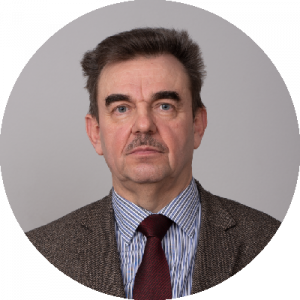Home > Ecosystem for European Education Mobility as a Service: Model with Portal Demo (eMEDIATOR)
Supervisors:
,

Academic degree and current position in TSI: professor, leading researcher of the Engineering Faculty, Director of Bachelor in Computer Science programme.
Previous experience: Rector and more than 10 years a Vice-rector for Education Affairs for Transport and Telecommunication Institute (TSI), Software Engineering team lead and Quality Manager at SWH Technology (later Exigen Latvia).
Membership: LZP expert, AIC expert; Reviewer (member of the committee) in several international conferences (IADIS ML 2009-2019, ICALT 2009, ICEE/ICIT-2014 etc.); Member of the Editorial Board of the International Women’s On-line Distance Learning Journal (WOJDE, ISSN:2147-0367); TSI Representative for Europe Informatics (Informatics Latvia); TSI Member of the Senate; MIP-2006-2018 Chairman and member of the Organizing Committee (TSI, Riga, Latvia); Member of the Latvian Operations Research Society; Member of the Latvian Association of University Professors.
Academic experience:
Author of more than 50 scientific and academic publications, 3 textbooks.
Teaching at post- and graduate level: Information and Software Systems Quality Models, Scientific Seminar (MSc in Computers Science, MIS, TSI); Object-Oriented Programming, Software Engineering, Transport Modelling, Introduction into Computer Science (Bachelor in Computers Science, TSI); etc.
Participation in projects (2013-2020):
Research Interests: Object-Oriented Programming, Software Engineering, Process Maturity, Artificial Intelligence, Digital Forensic, Quality Management Systems, Online Pedagogy and E-learning.
Supervised Doctoral, Master and Bachelor Theses (number): Promoted 1 Doctoral, more than 30 Master theses and more than 50 Bachelor theses and was official reviewers of 3 PhD theses.
Awards: (2017) Nomination for King Hamad Bin Isa Al Khalifa UNESCO Award for the use of ICT in Education by the Ministry of Education and Science of Latvia.(2019); acknowledgments by Ministry of Education and Science (2005);acknowledgments by Latvian Education Fund.

The project is implemented by a consortium of 5 European universities: Transport and Telecommunication Institute (LATVIA) – project leader, University of Ioannina (GREECE), University of Murcia (SPAIN), Aalen University (GERMANY), University of Lodz (POLAND).
The aim of the project is creation an ecosystem model with demo portal used principals of service-based, competency based, student-cantered education and business-academia partnerships for offering courses and various types of employment within one single European education and employment market. As a result of the project, the following should be achieved:
We waive copyright and related rights in the work worldwide through the CC0 1.0 Universal public domain dedication.
https://joinup.ec.europa.eu/licence/cc0-10-universal-cc0-10-public-domain-dedication
Total budget of the project: 294145,00 EUR
ERASMUS + STRATEGIC PARTNERSHIP PROJECT Under the Union programme for education, training, youth and sport No – 2021-1-LV01-KA220-HED-000027571
